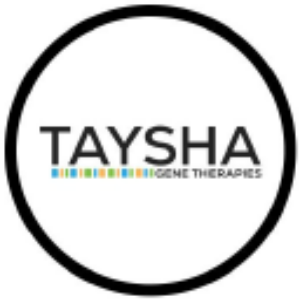Taysha Gene Therapies Receives Rare Pediatric Disease Designation and Orphan Drug Designation for TSHA-104 to Treat SURF1-Associated Leigh Syndrome
DALLAS--(BUSINESS WIRE)--Taysha Gene Therapies Inc. (Nasdaq: TSHA), a patient-centric gene therapy company focused on developing and commercializing AAV-based gene therapies for the treatment of monogenic diseases of the central nervous system in both rare and large patient populations, today announced that it has received rare pediatric disease designation and orphan drug designation from the U.S. Food and Drug Administration (FDA) for TSHA-104, an AAV9-based gene therapy in development for SURF1-associated Leigh syndrome. Taysha anticipates it will submit an Investigational New Drug (IND) application to the FDA for TSHA-104 in 2021.
“We have now obtained rare pediatric disease and orphan drug designations in multiple gene therapy programs, which we believe will allow us to work more effectively with the FDA as we advance our broad portfolio,” said RA Session II, President, CEO and Founder of Taysha. “The receipt of these designations highlights the dedication that our team has to advancing our gene therapy pipeline as efficiently and rapidly as possible.”
Leigh syndrome is a severe neurological disorder that usually presents in the first year of life. It is characterized by progressive loss of mental and movement abilities that can result in death within two to three years. Approximately 10
“Being diagnosed with a mutation in the SURF1 gene is a truly devastating event for families,” said Kasey Woleben, Founder of Cure SURF1 Foundation. “Taysha’s commitment to developing a gene therapy for SURF1 deficiency is greatly welcomed by the patient community and has the potential to save the lives of children afflicted with this progressive disorder.”
Taysha has secured rare pediatric disease designation and orphan drug designation for multiple of its programs, including GM2 gangliosidosis, CLN1, Rett syndrome and now SURF1. In addition to these designations, the company also has fast track status for the CLN1 program.
“SURF1 deficiency is a monogenic mitochondrial disorder and is the most common cause of cytochrome c oxidase deficient Leigh syndrome,” said Steven Gray, Ph.D., Chief Scientific Advisor of Taysha and Associate Professor in the Department of Pediatrics at UT Southwestern. “Obtaining these key designations highlights our commitment to developing a gene therapy for the treatment of SURF1 deficiency.”
The FDA defines a rare pediatric disease as a serious or life-threatening disease in which the disease manifestations primarily affect individuals aged from birth to 18 years. Pediatric diseases recognized as "rare" affect under 200,000 people in the U.S. The Rare Pediatric Disease Priority Review Voucher Program is intended to address the challenges that drug companies face when developing treatments for these unique patient populations. Under this program, companies are eligible to receive a priority review voucher following approval of a product with rare pediatric disease designation if the marketing application submitted for the product satisfies certain conditions, including approval prior to December 11, 2022 unless changed by legislation. If issued, a sponsor may redeem a priority review voucher for priority review of a subsequent marketing application for a different product candidate, or the priority review voucher could be sold or transferred to another sponsor.
Orphan drug designation is granted by the FDA Office of Orphan Products Development to investigational treatments that are intended for the treatment of rare diseases affecting fewer than 200,000 people in the U.S. The program was developed to encourage the development of medicines for rare diseases, and benefits include tax credits and application fee waivers designed to offset some development costs as well as eligibility for market exclusivity for seven years post approval.
About Taysha Gene Therapies
Taysha Gene Therapies (Nasdaq: TSHA) is on a mission to eradicate monogenic CNS disease. With a singular focus on developing curative medicines, we aim to rapidly translate our treatments from bench to bedside. We have combined our team’s proven experience in gene therapy drug development and commercialization with the world-class UT Southwestern Gene Therapy Program to build an extensive, AAV gene therapy pipeline focused on both rare and large-market indications. Together, we leverage our fully integrated platform—an engine for potential new cures—with a goal of dramatically improving patients’ lives. More information is available at www.tayshagtx.com.
Forward-Looking Statements
This press release contains forward-looking statements within the meaning of the Private Securities Litigation Reform Act of 1995. Words such as “anticipates,” “believes,” “expects,” “intends,” “projects,” and “future” or similar expressions are intended to identify forward-looking statements. Forward-looking statements include statements concerning or implying the potential of our product candidates, including TSHA-104, to positively impact quality of life and alter the course of disease in the patients we seek to treat, our research, development and regulatory plans for our product candidates, the potential benefits of rare pediatric disease designation and orphan drug designation to our product candidates, the potential for these product candidates to receive regulatory approval from the FDA or equivalent foreign regulatory agencies, and whether, if approved, these product candidates will be successfully distributed and marketed. Forward-looking statements are based on management’s current expectations and are subject to various risks and uncertainties that could cause actual results to differ materially and adversely from those expressed or implied by such forward-looking statements. Accordingly, these forward-looking statements do not constitute guarantees of future performance, and you are cautioned not to place undue reliance on these forward-looking statements. Risks regarding our business are described in detail in our Securities and Exchange Commission filings, including in our prospectus dated September 23, 2020, as filed with the Securities and Exchange Commission (“SEC”) on September 24, 2020, pursuant to Rule 424(b) under the Securities Act of 1933, as amended, which is available on the SEC’s website at www.sec.gov. Additional information will be made available in other filings that we make from time to time with the SEC. Such risks may be amplified by the impacts of the COVID-19 pandemic. These forward-looking statements speak only as of the date hereof, and we disclaim any obligation to update these statements except as may be required by law.







